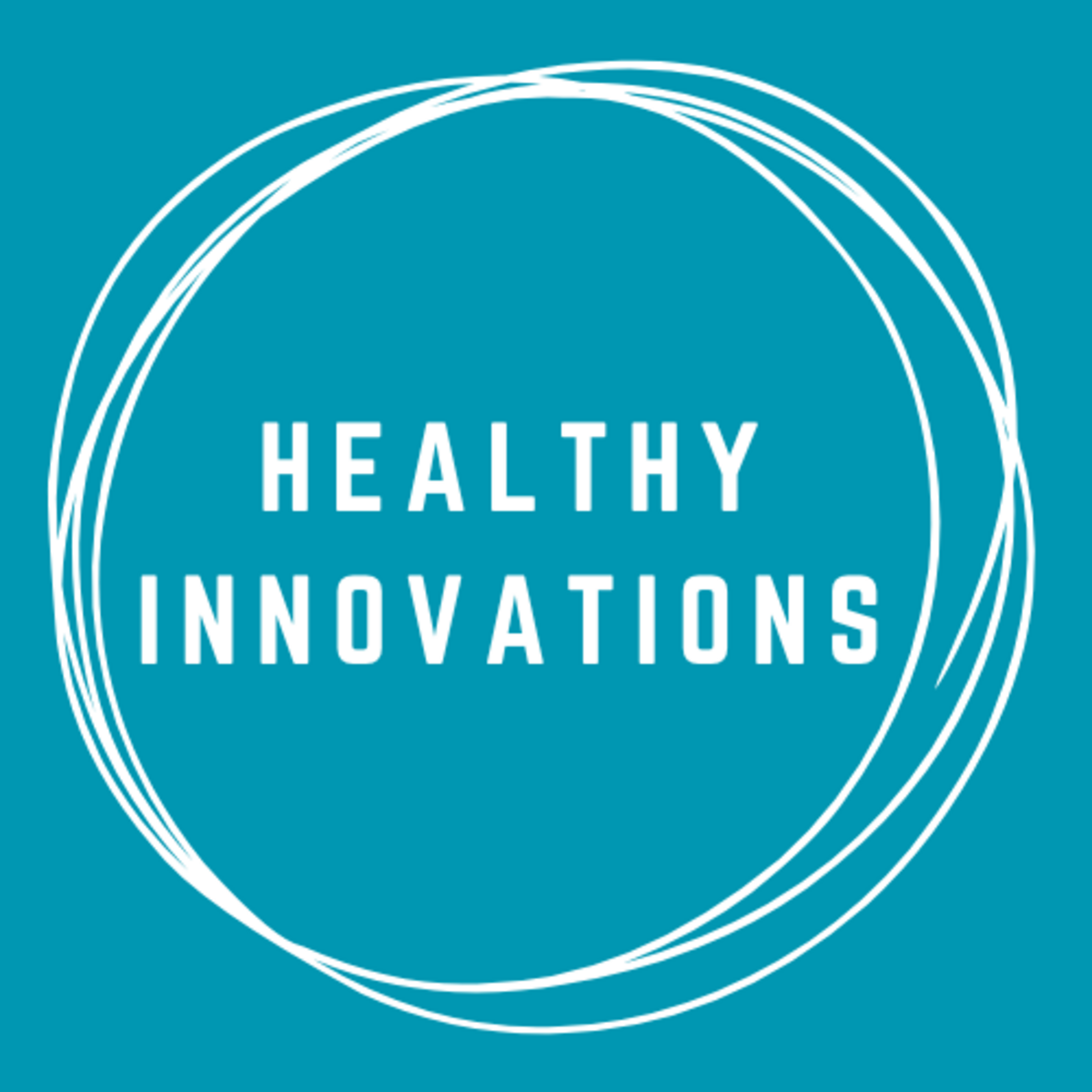Welcome back to Healthy Innovations! 👋
This week, we're exploring men's health - a sector undergoing genuine transformation. For decades, stigma and outdated systems created a crisis hiding in plain sight. Now, in 2025, AI, digital platforms, and precision medicine are finally closing the gap.
These innovations aren't just technologically impressive - they're saving lives by meeting men exactly where they are.
Let's dive in!
Breaking the silence
Nearly half of American men die before reaching age 75 - a sobering statistic that underscores a healthcare crisis hiding in plain sight. When Prince Harry recently warned that "the silence is killing people," he wasn't just raising awareness about mental health stigma. He was spotlighting a deeper truth: for generations, men have struggled to engage with healthcare systems that don't meet them where they are.
But amid this sobering landscape, a technological revolution is taking root. As we move through 2025, AI-driven predictive healthcare has evolved from promising concept to practical reality, offering unprecedented insights into individual health trajectories. Machine learning algorithms now weave together genetic profiles, wearable device data, electronic health records, and environmental factors to create truly personalized care pathways.
For men who have historically delayed seeking care due to stigma and accessibility barriers, these innovations represent far more than technological advancement - they're breaking down the walls that have kept millions suffering in silence.
Digital health: Dismantling the barriers to care
The Amsterdam-based startup Fellos perfectly captures this transformative moment.
Having secured €2 million in growth capital, the digital clinic is scaling rapidly by focusing on three areas where men face the highest barriers to seeking help: sexual health conditions like erectile dysfunction and premature ejaculation, skin conditions including acne, and hair loss. Since launching in 2024, the platform has already treated over 10,000 patients through a fully digital model that eliminates the traditional friction points of healthcare access.
The process is remarkably straightforward.
Men connect with licensed physicians through confidential chat consultations, and if medication is prescribed, it arrives discreetly at their doorstep through partner pharmacies. This model addresses a fundamental challenge that has plagued men's health for decades: the gap between needing care and actually seeking it.
Research reveals the scale of this problem.
Studies consistently show that 40-60% of men experiencing erectile dysfunction never seek medical attention or take medication under professional guidance. This silence leads to cascading problems: misdiagnosis, drug misuse, and untreated underlying conditions that often manifest as sexual dysfunction, such as heart disease or diabetes. Digital platforms are proving remarkably effective at eliminating the intimidation factor of in-person visits while maintaining the clinical rigor and quality of care that physicians demand.
The digital health revolution extends well beyond addressing sexual health concerns.
Extended reality technologies, including augmented and virtual reality, are transforming what's possible in remote medical consultations. In specialized trials and pilot programs currently underway, surgeons are performing complex procedures using haptic feedback robotic systems controlled remotely, while patients receive comprehensive medical consultations through hyper-realistic virtual environments.
These advances prove particularly transformative for men living in rural or underserved regions, where access to specialized care has traditionally required traveling hundreds of miles.
AI revolutionizes prostate health and sexual function
Prostate cancer is the second-leading cause of cancer death among American men and the most commonly diagnosed cancer among men in Europe and Australia. Incidence rates are climbing sharply across Asia, making advances in treatment and outcome prediction critical.
Encouragingly, AI is fundamentally transforming both diagnosis and post-treatment outcomes.
Recent groundbreaking studies have analyzed cohorts of over 8,500 patients to develop AI-based machine learning models that can predict urinary continence and erectile function recovery following robotic-assisted radical prostatectomy.
These artificial neural network models assess postoperative functional outcomes with a level of accuracy that was simply impossible with traditional risk assessment tools, helping both surgeons and patients make more informed treatment decisions.
The growth in this field has been exponential. A review of published studies tracking AI applications for sexual health shows research activity has surged dramatically since 2020, with investigators exploring everything from diagnosis through advanced imaging and wearable sensors to predictive modeling and even drug discovery.
Perhaps the most encouraging clinical breakthrough comes from precision surgical techniques. The NeuroSAFE approach, which allows surgeons to preserve nerve function while ensuring complete cancer removal, has nearly doubled erectile function preservation rates compared to standard methods. Recent clinical trials demonstrate that 39% of men experience no or mild erectile dysfunction twelve months after surgery using this technique, compared to just 23% with conventional approaches.
For men facing prostate cancer treatment, this represents a transformative difference in post-treatment quality of life.
Precision medicine at home
The platform MNLY represents what becomes possible when AI, at-home diagnostics, and personalized supplementation converge into a seamless system.
Launched in 2021, MNLY has pioneered an approach that analyzes approximately 100 distinct data points per user, drawing from both blood biomarkers collected via a simple at-home finger prick and an extensive 86-question health assessment covering seven critical areas: concentration, confidence, stamina, mood, sleep, libido, and recovery.
What makes the platform particularly innovative is its speed and automation.
Their AI engine processes this complex dataset and delivers comprehensive results within 48 hours of the lab receiving samples - eliminating the practitioner bottleneck that typically slows traditional telehealth providers. The system then generates highly personalized nutrition plans, evidence-based lifestyle recommendations, and custom-formulated supplements that are manufactured and shipped monthly.
As users retest every three to five months, the AI continuously adjusts supplement dosages and health recommendations based on evolving biomarkers, creating a truly dynamic and responsive approach to wellness.
Early results from beta programs have been revealing.
Testing consistently uncovered significant hormone, vitamin, and nutrient deficiencies in most male participants - deficiencies that often go undetected in standard annual physicals.
This precision approach reflects broader trends emerging in AI-driven hormone monitoring throughout 2025, where continuous tracking technology provides real-time data on hormone levels and helps identify personal patterns rather than relying on single-point-in-time snapshots. This enables physicians to make informed decisions based on each patient's unique biological rhythms rather than population averages that may not apply to individual cases.
Mental health designed for men
Prince Harry's decade of work with veterans and mental health advocacy has exposed a troubling pattern that transcends military service. He's witnessed how men across all communities experience profound isolation rooted in a shared but unspoken belief: that no one else will truly understand what they're going through.
Yet research consistently reveals that men dramatically underestimate how many of their peers support open emotional conversations - a dangerous perception gap that keeps millions suffering alone.
This is precisely where AI-powered mental health tools show remarkable promise.
They offer three critical advantages that align with how many men actually approach seeking help.
First, privacy: AI applications provide confidential digital spaces where men can express concerns without fear of judgment from colleagues, family, or friends.
Second, accessibility: mental health support becomes available 24/7, accommodating demanding work schedules and removing geographical barriers that limit access to quality therapists.
Third, reduced stigma: the digital interface creates a degree of emotional distance that paradoxically makes it easier for many men to take that crucial first step toward acknowledging their struggles.
Current AI applications in mental health span an impressive range.
Early detection systems employ natural language processing to identify subtle linguistic markers of depression, anxiety, or suicidal ideation in text communications. Personalized digital companions deliver evidence-based cognitive behavioral therapy techniques adapted to men's specific communication styles and needs. Virtual reality exposure therapy allows men to confront stressful situations or process trauma in controlled, safe environments, gradually building resilience and healthier coping mechanisms.
Prince Harry has been particularly vocal about social media's role in the crisis.
He emphasizes that too many young men today are essentially being raised by algorithms designed to maximize engagement through outrage and division rather than by real mentors - fathers, coaches, teachers, and friends - who can model emotional honesty and healthy masculinity. He argues that fundamentally changing platform incentive structures to reward genuine connection and empathy over exploitation could shift how an entire generation of boys develops their understanding of strength and vulnerability.
A future worth fighting for
The innovations emerging in 2025 - from Fellos's digital clinic and MNLY's precision health approach to AI-powered surgical prediction and virtual mental health support - represent a fundamental reimagining of how men can engage with their health in ways that work with their lives.
The insight that "connection saves lives" has never been more relevant. Combined with technology that makes these connections accessible, private, and personalized, we're reaching a genuine inflection point in men's health.
Innovation highlights
🩺 Stethoscopes get smart upgrade. Researchers are teaching AI to detect heart disease earlier than human ears can. By analyzing subtle sound patterns through digital stethoscopes, algorithms can identify problems before traditional symptoms like murmurs appear. Early tests show 95% accuracy for healthy hearts and 85% for distinguishing disease types. The 200-year-old stethoscope might finally be getting its biggest innovation yet!
🍔 Big Brother counts your bites. Scientists developed ByteTrack, an AI that watches kids eat and counts every bite to predict obesity risk. The system achieved 79% accuracy detecting bites from meal videos, revealing that children who eat faster with larger bites consume more food. While it sometimes miscounts during squirmy moments, it beats manual observation for spotting eating patterns that lead to weight issues.
🧠 Brain pacemaker for epilepsy. Researchers at University of Pittsburgh developed a personalized deep brain stimulation treatment for drug-resistant epilepsy. By mapping each patient's unique brain wiring and targeting the specific thalamus regions connected to their seizure zones, patients saw nearly 90% seizure reduction—some became seizure-free for months. It's like a brain pacemaker, but customized to your neural network.
Cool tool
🔎 Map My Mole is a digital teledermatology service that puts consultant dermatologist expertise in your pocket. Using a smartphone-attachable dermoscopic lens (the Dyplens) and guided app, you can capture clinical-grade images of your moles at home and get them reviewed by a UK-based consultant dermatologist within 24-48 hours.
A UK trial saved nearly 1,000 GP appointments and cut urgent skin cancer referrals by 64%. GP time per mole concern dropped from 15 minutes to just 2-4 minutes, and only about 10% of reviewed cases actually needed hospital referral - meaning faster peace of mind for the many, and faster action for the few who truly need it.
Weird and wonderful
🏖️ Fake it 'til you make it (to Bali). Can't afford a vacation? A Meta designer created "Endless Summer," an AI app that generates fake photos of you living your best life in exotic destinations for as little as $3.99. Choose from 30-300 images of yourself posing at landmarks with AI-generated friends. There's even a "room service" feature that delivers two fake vacation pics daily - perfect for filling your Instagram with memories you never made while eating instant ramen at home.
Built on Google's Gemini image algorithm, the app targets burned-out workers priced out of real travel. The designer says he wanted to capture that summer vacation feeling, though critics find it depressingly dystopian - monetizing fake memories for people who can't afford actual experiences.

Image created using Canva AI
Thank you for reading the Healthy Innovations newsletter!
Keep an eye out for next week’s issue, where I will highlight the healthcare innovations you need to know about.
Have a great week!
Alison ✨
P.S. If you enjoyed reading the Healthy Innovations newsletter, please subscribe so I know the content is valuable to you!







